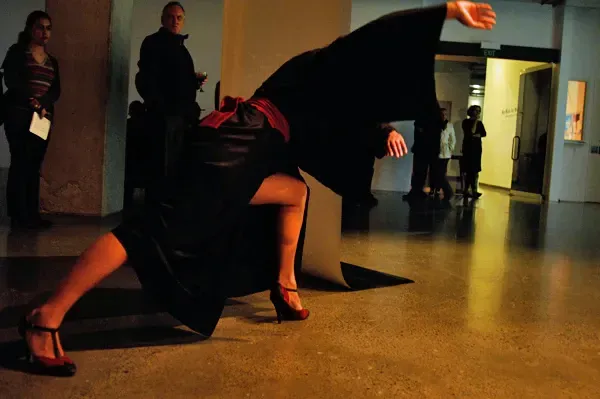Performance Ethics Episode 7: Working relationships

This episode deals with questions of ethical relationships between performers and institutions, festivals, curators, directors and choreographers.
This episode deals with questions of ethical relationships between performers and institutions, festivals, curators, directors and choreographers. It addresses the protection of the performer from real physical risks as well as questions of psychological resilience and how health and safety concerns can impact on artwork before moving into the history of poor labour relations and sometimes outright abuse of performers in the field of dance.
Who is speaking and when:
00:00 Introduction (Melissa Laing)
00:53 Carol Brown | 01:44 David Cross
02:37 Carol Brown | 0:47 Moana Nepia
04:3 Craig Cooper | 05:01 Mark Jackson
06:34 Craig Cooper | 08:15 Becca Wood
09:35 Mark Harvey | 10:24 Craig Cooper
11:03 Mark Jackson | 13:06 Kalisolaite ‘Uhila
17:15 Alys Longley | 18:33 Carol Brown
19:31 Murray Edmond | 19:43 Alexa Wilson
21:55 Stephen Bain | 24:31 Louis Tu’u
25:04 Stephen Bain | 26:04 Alison East
27:25 Carol Brown | 28:40 Craig Cooper
29:19 Murray Edmond | 29:51 Louise Tu’u
30:28 Murray Edmond | 30:54 Craig Cooper
32:30 Rose Martin | 34:02 Tru Paraha
34:40 Rose Martin | 35:59 Tru Paraha
37:18 Rose Martin | 38:22 Alison East
39:09 Alys Longley | 39:46 Rose Martin
42:37 Alexa Wilson | 43:25 Carol Brown
43:47 Alexa Wilson | 44:28 Alys Longley
45:54 Rose Martin | 47:51 Alison East
48:09 Alys Longley | 49:10 Rose Martin
51:17 Tru Paraha | 52:53 Rose Martin
54:43 Tru Paraha | 55:41 Stephen Bain
Moana Nepia introduces Dr Mason Durie’s model Te Whare Tapa Wha which was developed in 1982. This encapsulates a Maori view of health and wellness and has four dimensions: taha wairua (spiritual health), taha hinengaro (mental health), taha tinana (physical health) and taha whanau (family health). These four dimensions are represented by the four walls of a house. Each wall is necessary to the strength and symmetry of the building.
- Episode 7: Working relationships within the performance community (first released 08 May 2014)
- Available at University Without Conditions
Courtesy of University Without Conditions